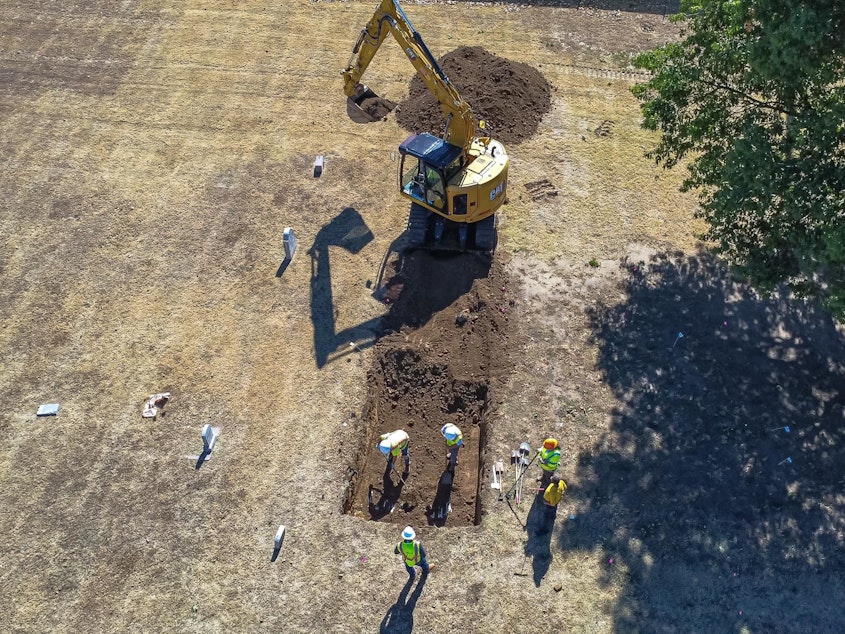21 more unmarked graves are discovered in the Tulsa Race Massacre investigation

Researchers have unearthed an additional 21 unmarked adult graves that could be linked to victims of the 1921 Tulsa Race Massacre.
Tulsa, Okla., city officials announced on Monday that 17 adult-sized graves were uncovered at an excavation site in the Oaklawn Cemetery and another four were found on Tuesday, including two child-sized burials.
The project is part of the city's years-long efforts to get an accurate count of how many people were killed when a white mob decimated the affluent Greenwood district of Tulsa, where black residents lived under Jim Crow segregation.
Some historians estimate as many as 300 Black people were killed in the attack and the days of martial law that followed. Nearly all are believed to have been buried in a series of mass graves approved by the white authorities of the time. Under the temporary restrictions, Black family members of the deceased were reportedly barred from witnessing the burials, as they were held under armed guard, away from their dead mothers, fathers, sons and daughters.
Historic accounts trace the spark of the riot to an incident between a young black man and a white woman in a downtown elevator. The man, who worked as a shoe shiner and was in the elevator on his way to the restroom, allegedly offended the woman, who worked as an elevator operator.
The incident happened shortly after a spate of race riots that swept across the county in 1919.
Scientists will begin excavating by hand
Scientists at the site in Tulsa will now begin excavating by hand, using finer grain tools to clean up the coffins, according to state archeologist Kary Stackelbeck. That will help researchers analyze the construction style and hardware of the caskets in order to determine when they were interred.
"This is going to be part of our process of discriminating which ones we're going to proceed with in terms of exhuming those individuals and which ones we're actually going to leave in place, at least for now," she added.
Researchers also found 19 unidentified bodies in 2o21 that were later re-buried.
"But testing on some did not yield a very good result," Stackelbeck said in an update last week. Now, she explained, teams are going back to those same bodies to "obtain some additional samples and hopefully get some better results."
"Much like last year, we're trying to do every step of this process as respectfully as possible," she said.
A pastor or another member of the clergy will also be present as the remains are transported to the forensic lab.
The excavation is expected to be completed by Nov 18. [Copyright 2022 NPR]

